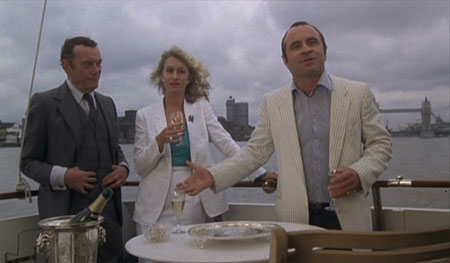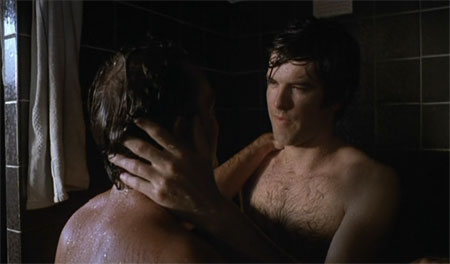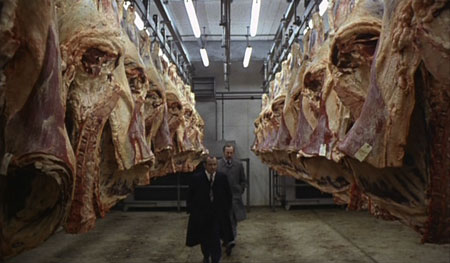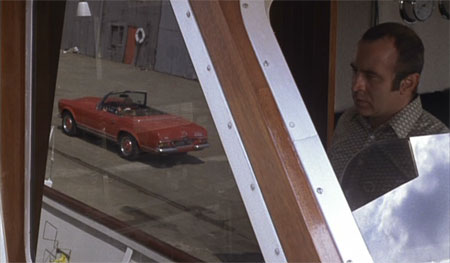A part of this viewing list: Criterion Collection Spine #26: John Mackenzie’s The Long Good Friday.

The Long Good Friday stars Bob Hoskins and contains a Gayish Pierce Brosnan. It was made before I was born, but having seen it, I believe that Guy Ritchie loves this movie. Maybe because the film is argotful of the London underground, and films like Lock, Stock and Two Smoking Barrels and Snatch, and characters like Don Cheadle plays in the Ocean’s franchise echo so strongly with the natural cadence, of bob [Hoskins] and weave. It is a gangster film only loosely, and even 27 years after it was made, the political subtext involving the IRA and hands-dirty political corruption is what is most obvious. We don’t find out that it is the Irish causing Harold [Hoskins] to have such a long Good Friday, but we do discover a sincere respect for the effective tactics of the IRA, if not quite an outright endorsement of them.

Hoskins is meant to be the hero, as much as a crime-lord can be; so we have to find something even more despicable to attach the rancor toward. Betrayal is the motive which allows this to happen, and when it turns out that betrayal was only apparent and accidental the cliff ahead seems inevitable. Harold has ruled London, in peace, for ten years, but in a little over 24 hours ends up so far out of his element that we have almost as complete a reversal as possible. Notwithstanding the aforementioned Gay Pierce Brosnan, there is a significant amount of homosexual subtext to the film as well. The always excellent Helen Mirren is the only female character of any substance in and entire film of gun-wielding gangsters taking showers, hugging each other, taking more showers, being stabbed by Gay Pierce Brosnan while taking showers, etc. Pierce Brosnan’s character isn’t actually gay, he just acts like it in order to stab the left-hand man and bosom-military-buddy of Harold, who actually is gay, at least in the movie. Follow me, didja?

The American Mafia is present in the form of a lawyer and some dude who is going to help fund Hoskins in his real-estate venture to make a mint buying property for the Olympic Stadium before it is built, or something. The details aren’t ever crystal, and don’t need to be. What also isn’t crystal is whether the Mafia is in cahoots, or at least contact, with the IRA who are destroying Harold’s empire. So this gangster film also raises some hairy foreign policy questions. There’s plenty of the decadence that characterized 1980s culture, sans the cocaine, since Harold “never got into narcotics.” I kept expecting a Goodfellas-esque unsanctioned drug ring after that, but it never materialized. That’s what the film excels at, the immaterial expectation, there are shadows in the London fog, but nothing clearer, even for those used to walking its streets, innit?

- Criterion Essay by Michael Sragow
- Criterion Contraption Review
- MQRE Review Roundup
- Tons of YouTube Clips
- Clip 1
- Clip 2
- Clip 3
- Clip 4
- 11 Helen Mirren Clips